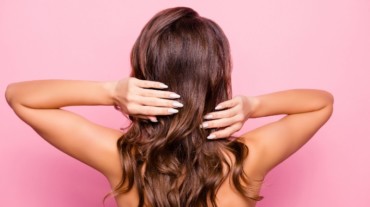Using dry shampoo every single day? Experts say it could injury your hair

Dry shampoo is a fast repair for individuals who don’t have time to scrub their hair. Many health lovers is perhaps utilizing it, as it isn’t wholesome to scrub hair every single day. But then in addition they don’t need their hair to be sweaty and sticky. Excessive use of something is rarely good. There isn’t any examine or analysis on the uncomfortable side effects of dry shampoo, however you would possibly recall a number one firm taking its dry shampoo merchandise off the cabinets final yr as a result of excessive ranges of benzene, which is understood to be a cancer-causing chemical. Read on to search out out if dry shampoo can injury hair too.
What is dry shampoo?
Dry shampoo is a well-liked hair care product that gives a handy approach to refresh and clear mane with out the same old hair wash. It is available in spray or powder type and is designed to soak up extra oil, filth and odour from the scalp and hair, explains Dr Vichitra Sharma, Consultant, Department of Dermatology, Amrita Hospital, Faridabad. Dry shampoo principally makes the hair look cleaner and extra voluminous, one thing which all of us need.

Dry shampoo is beneficial for:
• Busy individuals who lack time for normal hair washing.
• Frequent travellers who might not have entry to showers.
• Fitness lovers who need to handle sweat and oil with out frequent hair washing.
• People with dyed hair to increase color vibrancy.
• People with oily scalp to soak up extra oil between washes.
• People with wonderful hair so as to add quantity and thickness.
Side results of dry shampoo
Dry shampoo might have many advantages, nevertheless it has uncomfortable side effects too. Here are a few of them:
1. Scalp irritation and allergic reactions
Some dry shampoos comprise elements that may irritate the scalp or trigger allergic contact dermatitis or irritant contact dermatitis, says the knowledgeable. Fragrances, preservatives and propellants current within the product are all widespread irritants. If you’ve got scalp dermatitis, it could manifest as redness, itching, burning or flaking.
2. Clogged hair follicles
Regular use of dry shampoo can probably result in clogged hair follicles and build-up on the scalp. This build-up can entice filth, oil and lifeless pores and skin cells, probably inflicting points like folliculitis, which is irritation of the hair follicles.

3. Hair and scalp dryness
Dry shampoo is designed to soak up oil, which might result in the elimination of pure oils that hold the scalp and hair moisturised. Overuse of dry shampoo might end in dry, brittle hair and an imbalanced scalp, probably resulting in flakiness and discomfort.
4. Ineffective cleaning
While dry shampoo will help to soak up extra oil, it doesn’t present the identical degree of cleaning as conventional shampoo and water. Relying solely on dry shampoo with out common hair washing may end up in a less-than-clean scalp and hair. It may result in odour, bacterial development and an unhealthy scalp atmosphere, Dr Sharma tells Health Shots.
5. Hair color alteration
Some dry shampoos, notably these with tinted formulation, can alter the looks of colored hair. For occasion, light-coloured dry shampoos might go away a white residue on darker hair. Tinted variations, alternatively, would possibly have an effect on the vibrancy and longevity of hair dye.
6. Respiratory diseases and cancers
Dry shampoo might comprise asbestos fibres and magnesium silicate in powdered type. It might pose a danger for respiratory diseases and cancers, says the knowledgeable.
Moderation is vital, so keep away from utilizing dry shampoo day by day. Instead, attempt to use dry shampoo solely when obligatory, similar to on days when you have to lengthen the time between common washes.




